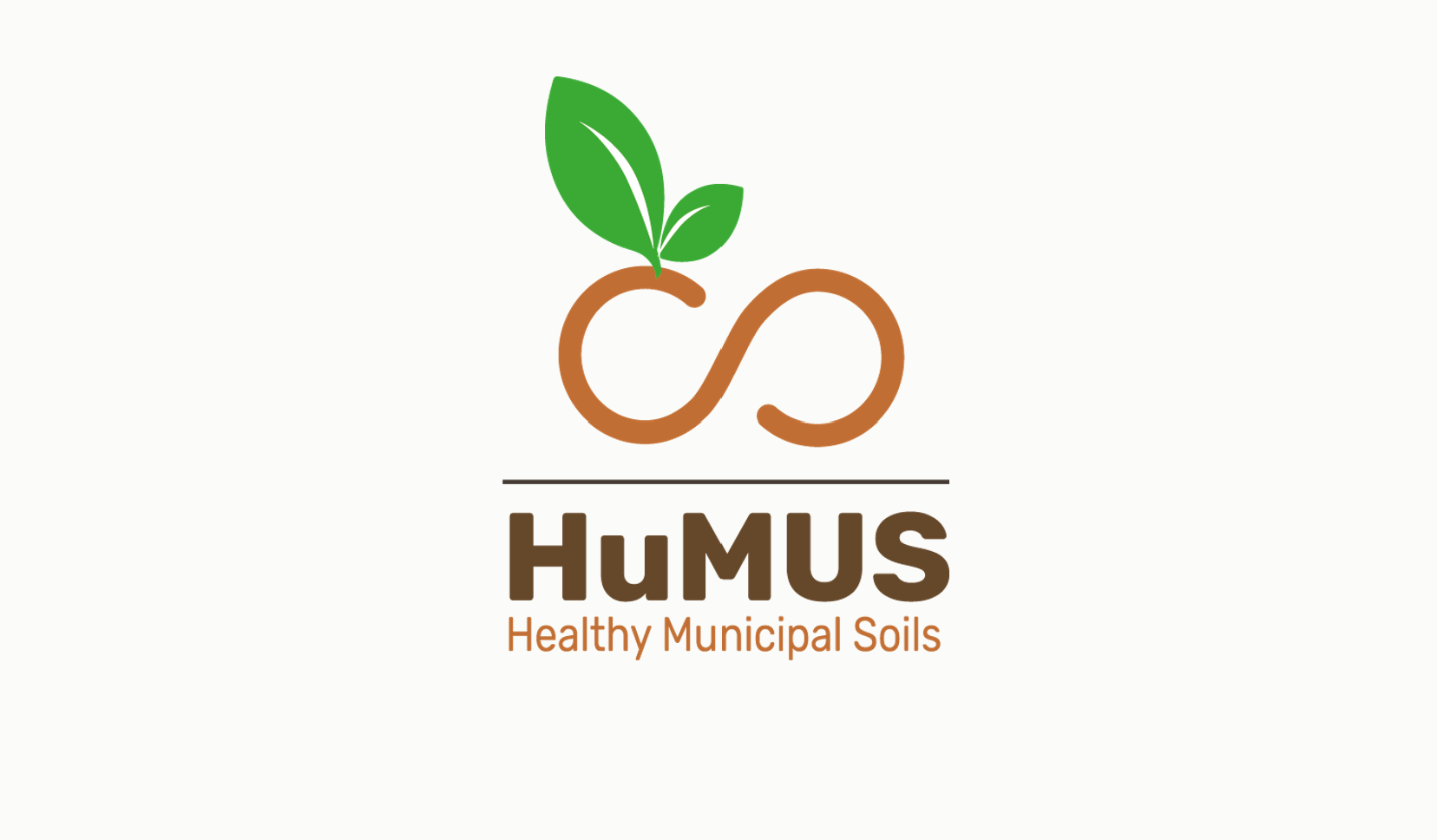
Input on soil health for HuMUS project call for Pilots
The Healthy MUnicipal Soil project HuMUS is seeking experiences and learnings from local and regional authorities who have been working, together with their stakeholders, on soil health.
This Horizon Europe project, involving different ERRIN members, aims to engage municipalities and regions by creating spaces for dialogue on soil health with Quadruple Helix stakeholders.
With the aim of improving soil quality at local and regional levels, the project will launch in Autumn 2023 a call for pilots targeting public administration bodies and agencies willing to engage in the exploration, design and implementation of experimental pathways for stakeholder mobilisation and collaboration. The HuMUS project will select 20 pilot projects which will receive a lump sum of 30.000 euros for a period of 12-18 months and which will connected to the 13 pilots which will be set up within the project’s consortium.
This unique opportunity will speed up initiatives contributing to the EU Soil Mission, one of the key priorities of the ERRIN Network and will allow 20 cities and regions to start working at grass-root level on soil health.
Share your experiences to shape the HuMUS call modalities by 23 June
In this context, ANCI Toscana, HuMUS project coordinator, invites all interested ERRIN members to share via the survey below their learnings and experiences to ensure the development of the call modalities which should effectively address the needs and challenges faced by regions regarding soil health by 23 June EOB.
A dedicated online meeting will be scheduled on 26 June at 14:00 to discuss ERRIN members' inputs, to which we’d like to invite contributors for an informal exchange.
- Gianpiero Petruzziello
- 13 June 2023
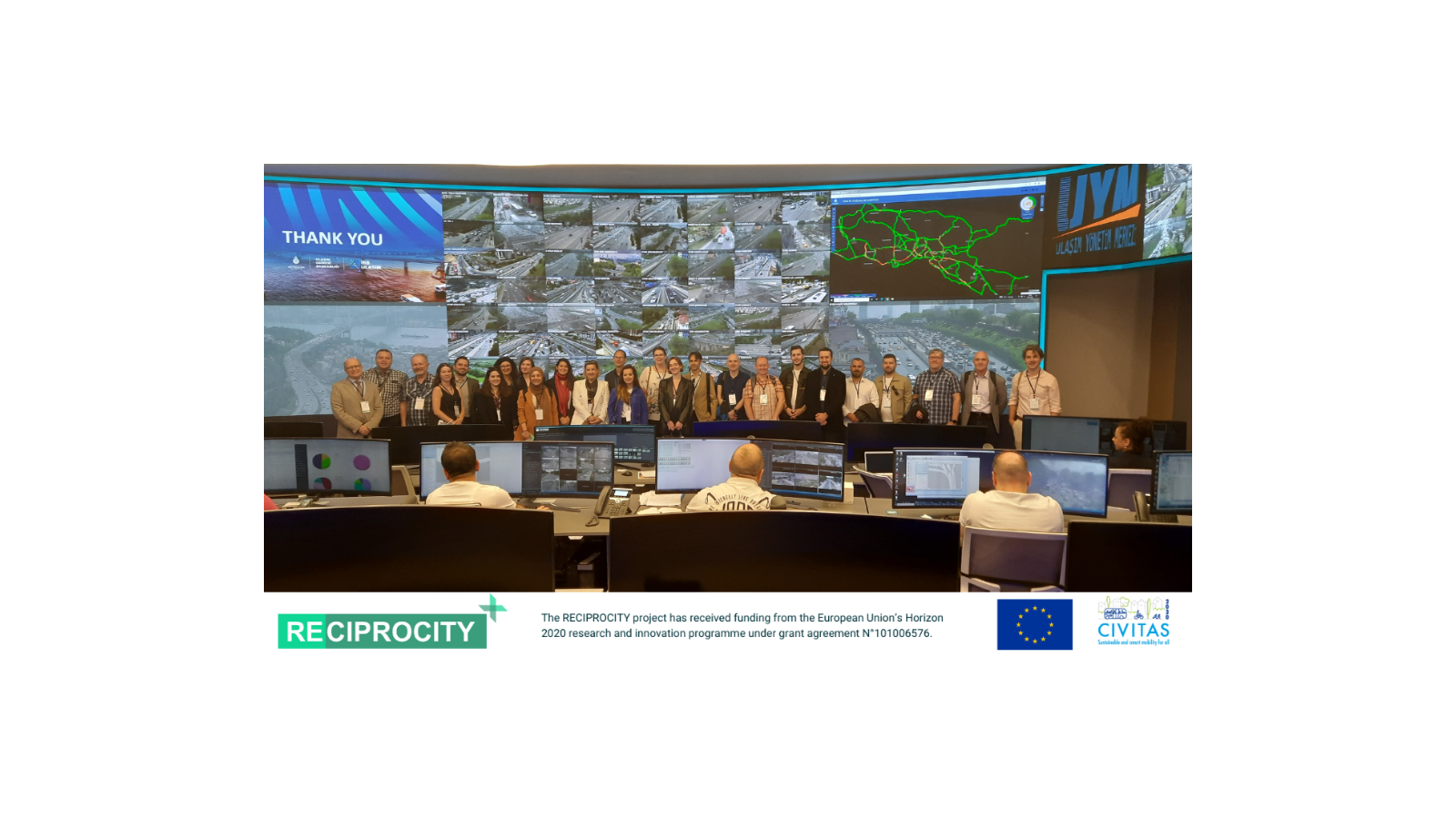
RECIPROCITY: Outcomes of the Istanbul Mobility Mission and new opportunities for members!
ERRIN participated in the RECIPROCITY Mobility Mission held in Istanbul from 23 to 26 May. The mission provided an excellent platform for participants to explore Istanbul’s innovative mobility ecosystem and engage in knowledge-sharing and best-practice discussions.
During the mission, ERRIN members from Nord Est Romania, Department of Yvelines (Ile-de-France region) and Olsztyn Municipality (University of Warmia and Mazury in Olsztyn) gained valuable insights and experiences that can be replicated in their respective cities to enhance smart and clean mobility solutions.
During the mission, participants had the opportunity to visit key institutions and learn from successful mobility initiatives:
- They discussed the central road mobility management system at the Mobility Management Center of the Istanbul Metropolitan Municipality (IBB), which utilises an extensive network of cameras and real-time monitoring to ensure smooth traffic flow.
- They also explored the integration of urban marine mobility with other transportation modes at Istanbul Şehir Hatları Genel Müdürlüğü, the City Lines Marine Transport Authority. With 29 ships and 53 piers, the authority operates 933 trips daily, serving approximately 40 million passengers annually. The e-taxi project, including vessels for 10 passengers and a mobile application for reserving and paying for e-taxi services, was discussed. The integration of urban marine mobility with other modes of transportation, such as micro-mobility options, trams, metros, and buses, was of particular interest to the participants.
- The participants engaged in discussions about micro-mobility development and cycling culture at Yapıdrom, the first micro-mobility company in Turkey.
- They also visited Fark Labs, an innovation and transformation hub actively involved in mobility-related initiatives and technological development for smart and clean cities.
- The participants visited Istanbul Okan University, where Konya Metropolitan Municipality presented their Konya Bicycle Transportation Master Plan (BİSUAP) 2030 and related projects. The plan includes initiatives such as bicycle lanes, bike trams, biker-empathy training for heavy vehicle drivers, and drawing competitions for school children to promote biking. The presentation generated significant interest among participants from various EU cities.
In addition to the Mobility Mission, the RECIPROCITY project offers further opportunities for cities and municipalities. The Funding and Legal Helpdesk provides support to cities in navigating legal and financing issues related to the replication of smart and clean mobility projects. This assistance enables participants to overcome potential barriers and implement innovative solutions in their local contexts. Submit your enquiry here!
Moreover, the RECIPROCITY project produced a Catalogue of Mobility Solutions collecting local innovative mobility cases to cluster and transfer knowledge and make it easy, digestible and replicable in other cities/regions. The catalogue will be published on the RECIPROCITY website, social media accounts, and on a matchmaking platform shared with other mobility projects to increase the visibility of innovative mobility solutions.
ERRIN members can also benefit from the ARRIVAL platform, resulting from the collaboration between RECIPROCITY and ENTRANCE projects, which serves as a European gateway for innovative and sustainable mobility solutions.
Looking ahead, the RECIPROCITY Final Event will take place from 28-29 September 2023. The event will unveil the key findings of RECIPROCITY, including good practices, policy recommendations and tools for replicating successful mobility initiatives. It will also provide a platform for participants to explore the local urban mobility ecosystem and engage with relevant actors in the sector. This event presents a unique opportunity for ERRIN members to broaden their knowledge and network within the smart and clean mobility domain.
About RECIPROCITY
The project's goal is to initiate and support replication projects in at least 20 cities and municipalities varying in size, location, degree of urbanisation and mobility demand. They will be equipped with the tools, knowledge and contacts to accelerate the process of replicating innovative mobility solutions. Therefore, the project will establish the format of Mobility Missions and Mobility Assemblies.
Please consider subscribing to our Newsletter, Twitter and LinkedIn.
- Gaia Ialisa Marotta
- 13/06/2023
-
Working Group
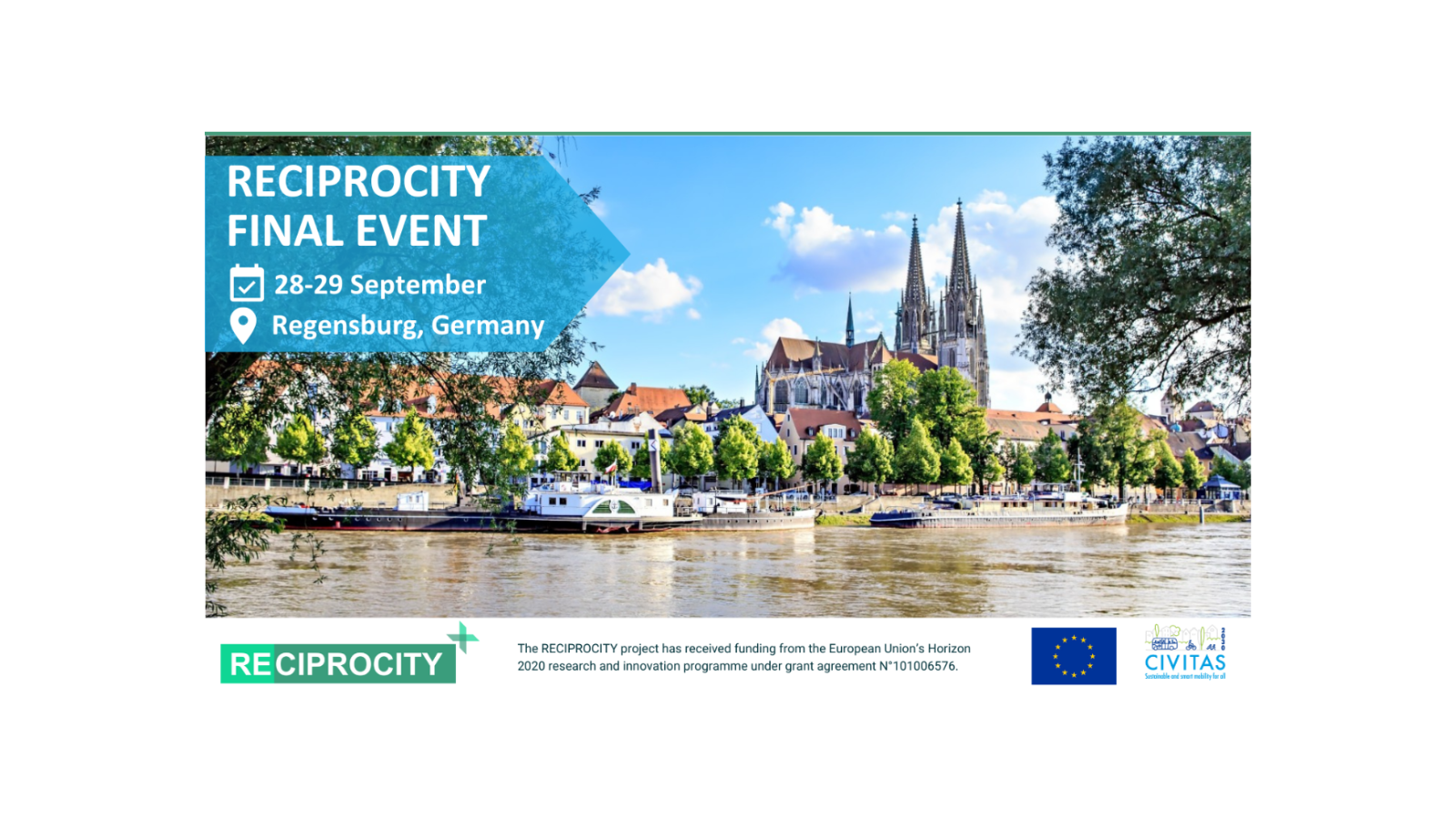
RECIPROCITY Final Event in Regensburg (Germany)
The final event of the RECIPROCITY project will be held on 28-29 September 2023 in Regensburg, Germany. Take advantage of the opportunity to apply for travel vouchers until 31 July!
On this occasion, the Mobility Assembly Regensburg will take place. It will be an exclusive platform designed for mobility stakeholders who wish to explore innovative solutions and gain valuable insights into their implementation. Attendees will have the opportunity to learn from successful projects and transfer this knowledge to their own local and regional initiatives. By participating, you can also enhance awareness and collaboration between various mobility ecosystems, including cities, industries, mobility providers, policymakers and financial intermediaries.
By attending the Mobility Assembly, ERRIN members will not only benefit from the event itself but also experience the transport achievements of Regensburg and interact with a diverse audience of mobility experts, practitioners, and decision-makers. Additionally, they will gain access to the extensive program of the Regensburg Traffic Congress on 28 September, providing even more opportunities for knowledge exchange and networking.
Please note that capacity for the event is limited, so we encourage you to register early. Late registrations will be added to the waiting list and considered in case of cancellations. To secure your spot, check the agenda and register by 15 September using the link provided below.
The applications for travel vouchers (up to 400€) are open until 31 July.
Please find the agenda and the registration link here.
About RECIPROCITY
The project's goal is to initiate and support replication projects in at least 20 cities and municipalities varying in size, location, degree of urbanisation and mobility demand. They will be equipped with the tools, knowledge and contacts to accelerate the process of replicating innovative mobility solutions. Therefore, the project will establish the format of Mobility Missions and Mobility Assemblies.
Please consider subscribing to our Newsletter, Twitter and LinkedIn.
- 28/09/2023 - 09:00 - 29/09/2023 - 18:00
-
TechBase
Franz-Mayer-Straße 1
93053 Regensburg
Germany - Gaia Ialisa Marotta
-
Working Group
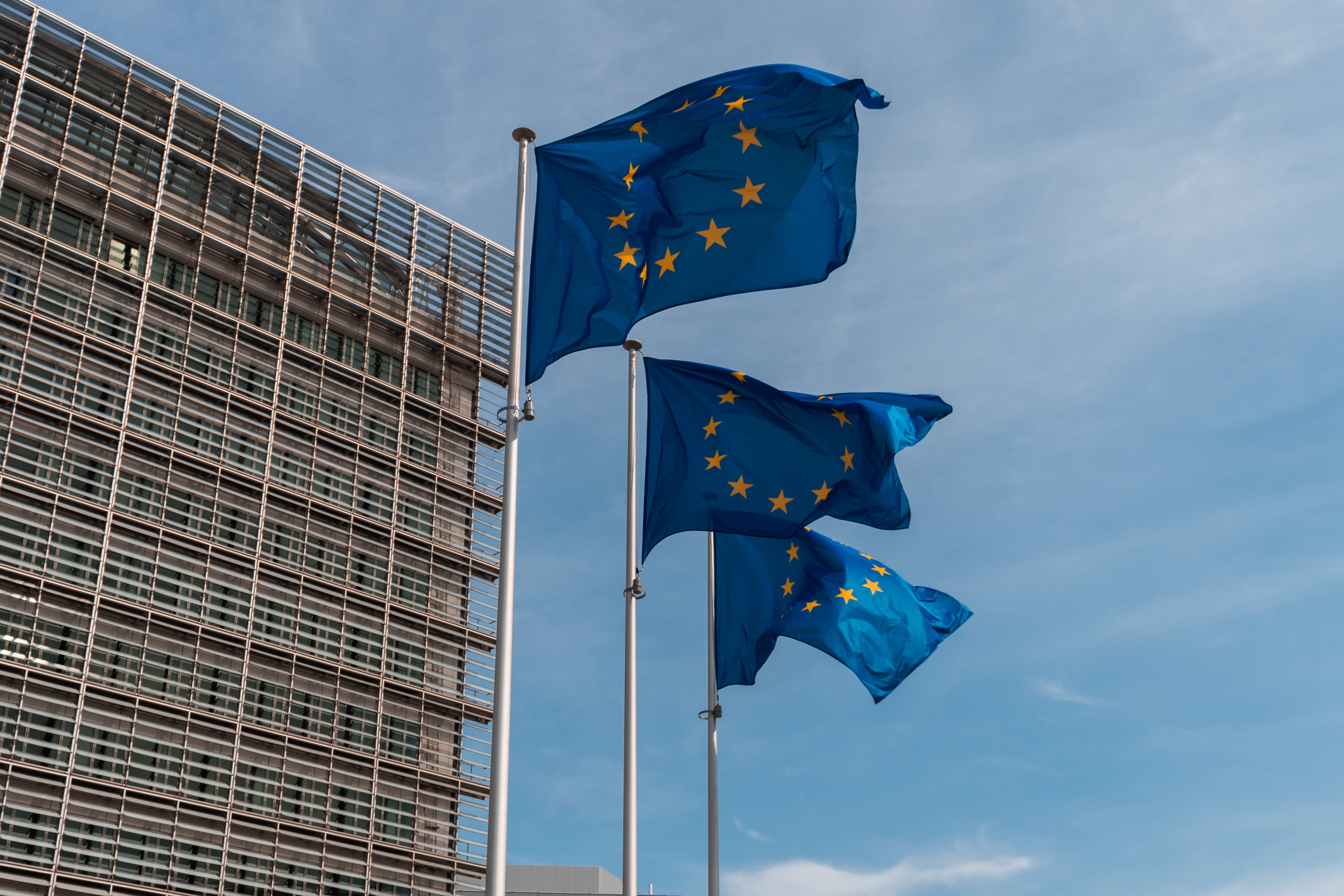
Policy WG meeting: Regional Innovation Valleys call under Horizon Europe – dealing with co-funding
In the frame of ERRIN’s focus on the Regional Innovation Valleys call under European Innovation Ecosystems part of Horizon Europe (EIE RIV call), its recent launch and related ERRIN mapping and matchmaking activities, the requirement of 50% co-funding and indicating its source at the moment of submission of the proposal emerges as one of the most challenging aspects of the EIE RIV call for prospective applicant regions. The call formally allows combining Horizon Europe and Cohesion policy funds for the co-funding of the projects when compliant with CPR and discussions around such synergies have been gaining momentum. However practical challenges and question marks remain, both in general terms and specifically with regard to the EIE RIV call, where they are particularly pressing to address given the call deadline on 17 October this year. As an example, managing authorities in some Member States are reluctant to discuss the possibility of using ERDF as co-funding for the EIE RIV call because it is not explicitly included in the operational programmes or reporting mechanisms that would need to be modified.
The upcoming Policy Working Group meeting is organised in response to this urgent need, following recent ERRIN Secretariat exchanges with the European Commission and regions, to further support network members in applying for the EIE RIV call. It will offer a chance for all interested colleagues to discuss together the different approaches considered to fulfil the call co-funding requirement, encountered obstacles and (ideas for) solutions. The event will aim to facilitate mutual learning as well as sharing and identifying practices which could possibly be implemented in different regions and streamlined based on an exchange of views. The meeting will be held online on 29 June from 15:00-16:00 CEST and is open to all ERRIN members, their stakeholders and representatives of managing authorities with an interest to join and actively exchange – we encourage you to invite them to register for the event by internally sharing the link below.
Register here. You will receive the link to connect automatically via email after your registration.
If you have identified a way to deal with the co-funding requirement, discussed the cohesion co-funding possibilities with your managing authority and they allowed for the use of ERDF for RIV, you have encountered any obstacles and/or you have taken any steps to address them, we kindly ask you to get in touch with ewa.chomicz@errin.eu and pirita.lindholm@errin.eu briefly outlining your points by 27 June.
Regional Innovation Valleys (RIVs) are currently one of the big topics when it comes to strengthening European innovation ecosystems from a regional perspective. In the new RIV call for proposals under European Innovation Ecosystems part of Horizon Europe (EIE RIV call) regions are put in the driving seat of quadruple helix interregional collaboration to reinforce their innovation ecosystems, building on strengths defined in S3 and linking territories with higher and lower innovation performances, while addressing key EU priorities.
Recent discussions and developments around operationalising funding synergies include the kick-off of the ERA Forum sub-group on access to excellence and synergies on 7 June, ERRIN Policy WG & DUT Partnership event on funding synergies on 8 June (find the slides and recording here), as well as publication of the Commission’s guidance in November 2022.
Thank you for attending this Policy WG meeting. You may find the presentation from the session on this page.
- 29/06/2023 - 15:00 - 29/06/2023 - 16:00
- This meeting will take place online
- Ewa Chomicz
Implementing co-funded action plans for connected regional innovation valleys - Heat networks
- Lorna Murphy
- 13/06/2023
-
Funding Programme
-
Deadline for Expression of Interest17 October 2023
-
NameKaren FraserOrganisation NameScottish Enterprise
- Get in Touch
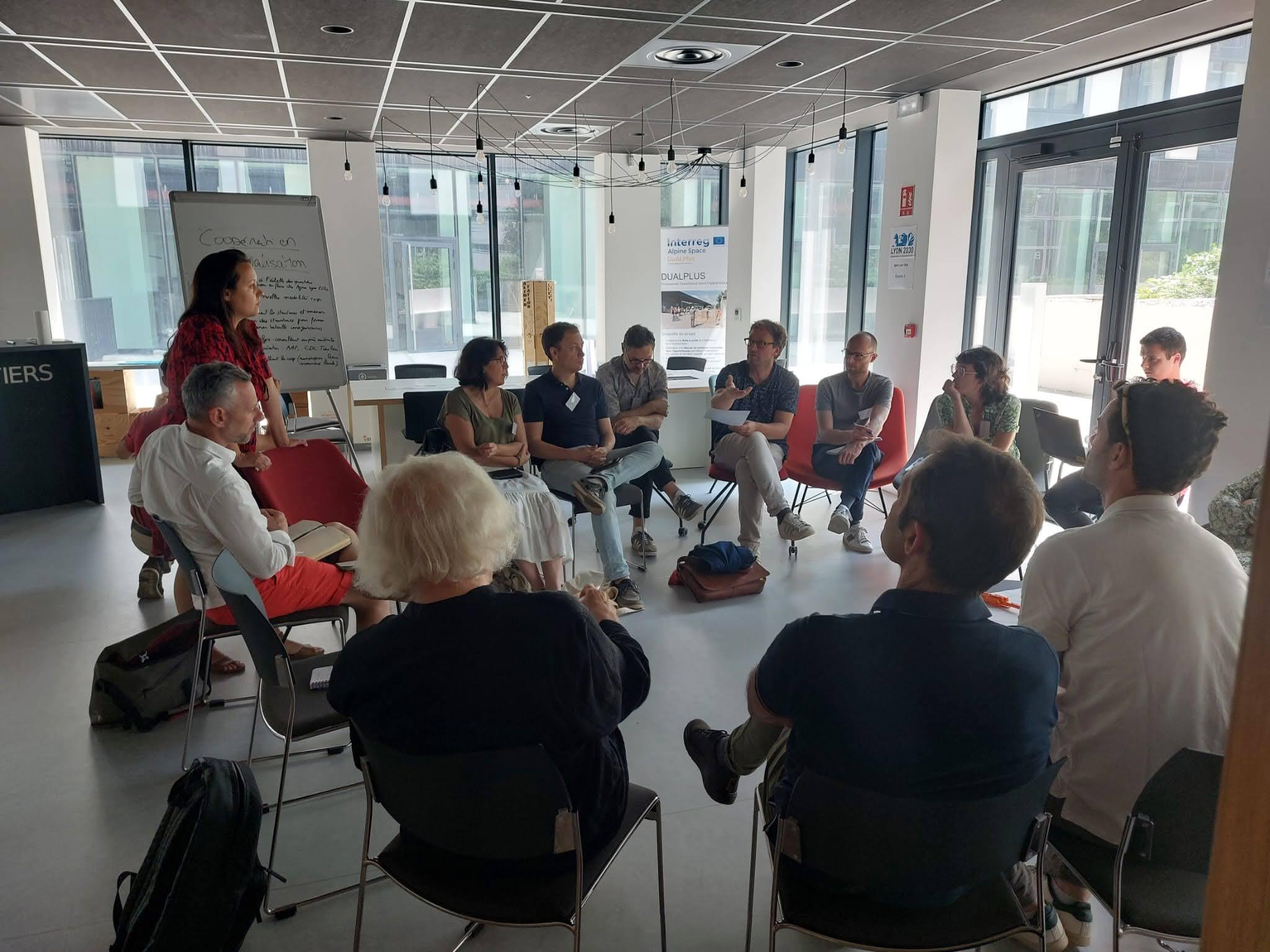
Mission City of Lyon: Pact towards climate neutrality co-designed with the local ecosytem
The City of Lyon, selected by the European Commission as one of the 112 Mission Cities and central actor of the ERRIN member Auvergne Rhône Alpes Region, is at the forefront of engaging key actors from all sectors of society to accelerate action towards climate neutrality.
After several assemblies, the 'Agora2030', composed of over 60 people representing the public sector, NGOs and private organisations, reached recently a peak, co-deciding on its commitments and identifying priority lines of action for the public authorities.
The Territorial Pact of Lyon, a milestone of the City of Lyon Climate City Contract, will include these commitments and actions. Commitments range from increasing capacity to act internally and together, to building a positive narrative around energy sufficiency, including new and attractive job opportunities, to experimenting with solutions, learning from experience. Public authorities were also asked to engage in structuring schemes for a green and fair transition at city and metropolitan level.
ERRIN Climate Neutral Cities Advisor, Julie Delcroix Coudun, City advisor of Lyon, participated in the collaborative and qualitative exchanges. The City actions and Agora 2030 serve as an example of collective responsibility in accelerating climate action. ERRIN supports Horizon Europe Missions to strengthen climate action through the ecosystem approach in bringing together all stakeholders to collectively define, develop and implement the solutions needed to achieve climate neutrality.
Learn more about ERRIN's engagement in NetZeroCites project and the Mission on 100 Climate-Neutral and Smart Cities by 2030.
- Julie Delcroix
- 13/06/2023
-
Members
-
Working Group

Training workshops on Blockchain
ERRIN members are invited to a pilot session of the Chaise project, dedicated to creating a curriculum on Blockchain, organised on 27, 28 and 29 June 2023.
The Chaise Project is an initiative funded by the European Commission to develop a curriculum on Blockchain. To this effect, Fujitsu – one of the core partners of this project – is inviting ERRIN members to participate in a pilot session of the created Blockchain workshops. Through hands-on experience, these workshops will boost knowledge about Blockchain and Distributed Ledger Technologies.
Please note that all workshops will start by introducing Blockchain. A deep dive into a core aspect of Blockchain will then be introduced. Hence, no prior knowledge of Blockchain is required; an interest in innovation and new technologies suffices.
Practically, Fujitsu will hold the following 3 sessions:
- Regulation, Legal aspects, and Governance of the Blockchain matters, 27 June, Diegem (Brussels)
- Blockchain Business Management and Planning, 28 June, Diegem (Brussels)
- Blockchain: Developing Use Cases, 29 June, Diegem (Brussels)
If you are interested, please send your name and contact details to jonathan.fenton.ftb@fujitsu.com, indicating that you are an ERRIN member and mentioning which module(s) you are interested in. There are only 15 places available for each Module, so a first come, first served principle will be used.
- 27/06/2023 - 09:00 - 29/06/2023 - 13:00
-
FUJITSU Offices
Culliganlaan 5
1831 Machelen
Belgium - Rodolphe Doité
-
Working Group

Hydrogen Roadmap – Survey for the Call for Evidence
Context
During the ERRIN Energy and Climate Working Group meeting dedicated to developments on Hydrogen policy (16 February 2023), the European Commission announced the publication of a European roadmap on Hydrogen Valleys. This roadmap will support the implementation of the Clean Hydrogen Partnership.
The work on this roadmap kick-started on January 2023 by focusing on the challenges and opportunities for the deployment of hydrogen valleys across Europe (more information is accessible here). Moreover, a series of workshops were organised by DG Research and Innovation in February, leading to the signature of a Joint Declaration on Hydrogen Valleys on 1 March 2023.
The S3 Partnerships on Hydrogen Valleys also released a position paper to consider several domains in this roadmap:
- Regulatory incentives
- Building a dedicated projects pipeline and financial incentives
- Research and innovation, skills and public acceptance
- Cooperation between Hydrogen Valleys at EU level
ERRIN’s input
The European Commission will soon publish a call for evidence (expected in June 2023 and open for four weeks) to collect further input from multiple stakeholders for the roadmap. In this frame, ERRIN wishes to produce an input paper building on the work of the S3 Partnership on Hydrogen Valleys and collecting ERRIN’s members’ needs, challenges and solutions. The aim of the following questions will be to advocate for a stronger role of regional and local authorities in the development of Hydrogen policies and strategies, including Hydrogen Valleys.
We would kindly ask you to answer this survey before Tuesday 4 July.
If you wish to get involved in the drafting process, review the document or any other activities, do not hesitate to contact elena.patatouka@errin.eu and rodolphe.doite@errin.eu.
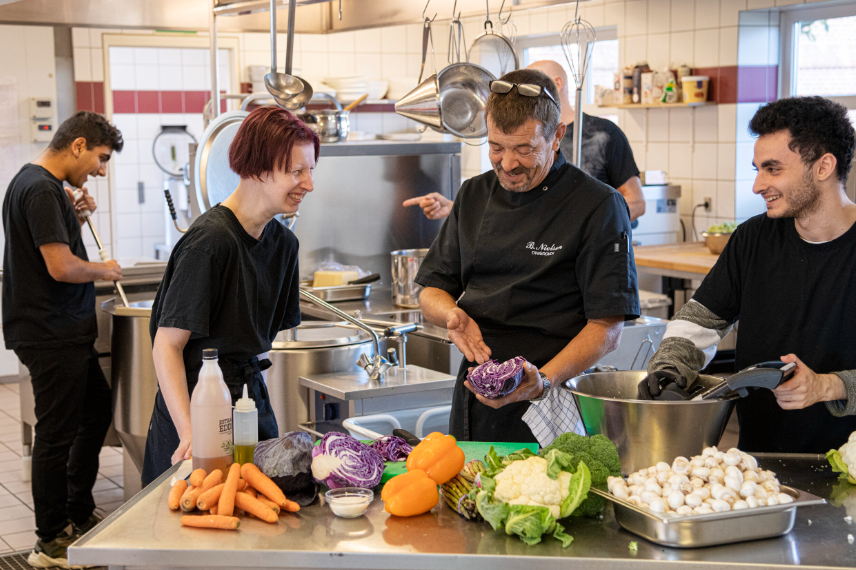
Mobility for everyone – Erasmus+ Accreditation Student Exchange
Project Idea
At Vittrup we have the possibility and space to give young people with challenges like autism, anxiety, mild depression, etc. a stepping stone to evolve with education or jobs.
The school is founded on community, equality, trust, and openness. The school offers the possibility to strengthen personal, social, and professional skills in a setting that is both comfortable and challenging. No matter the young person's background and experience, they will be met with trust, recognition, and respect. We look at the complete person and create space, tolerance and dialogue and demonstrate the strength of diversity.
We are looking for a partner school with a target group similar to ours, and preferably a focus on practically oriented education for vulnerable young people. We imagine that the cooperation should include exchange visits with each other, through which we would love to be challenged on the societal aspect of the local educational and vocational culture. For example, within the areas of inclusion, digitalisation and sustainability.
Programme/Call
Erasmus+ Accreditation for School Education (KA121-SCH). This partner search is for a partner school within the frames of the Erasmus+ accreditation for school education.
Partner Sought
We are looking for a partner school that is preparatory and guiding, with a practically oriented approach in relation to vocational education. We hope for a partner school that has students with challenges but with the potential to start a vocational education with the right support and education.
The subject tracks which will participate in the coming school year are “Gastronomy” and “Craftmanship/Business”. For this reason, the ideal partner school would have these areas within its teaching plan. In the future other tracks, which will be participating are “Game Design” and “Care”.
We are looking for a partner school with a target age group of 16-25 years old. We are especially interested in finding a partner in Eastern Europe or Belgium, but we will prioritise the type of school more than the location.
More info
For more info see attached or contact Maria Juhl at msj@ndeu.dk or +45 6188 0018.
Deadline for expression of interest: October 2023, or as soon as possible.
- Maria Sofie Juhl
- 12 June 2023
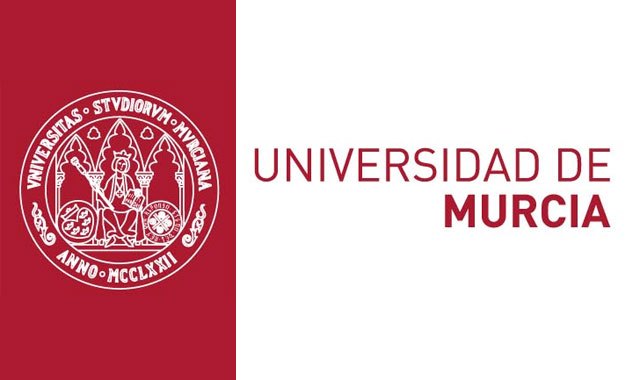
Project Manager – EUniWell Research and Innovation Strategic Framework
The University of Murcia is recruiting a Project manager for the EUniWell Research and Innovation Strategic Framework.
Project Description
The University of Murcia is a member of the EUniWell alliance that unites 11 universities and 60 associate partners drawn from 11 distinct regions of Europe in a cross-sectoral, interdisciplinary, knowledge-based perspective. Working in partnership with societal stakeholders and across the research-innovation education nexus, we aim to generate the EUniWell Strategic Framework for research and innovation with green and digital transitions, diversity, inclusion, and gender equality integrated into the EUniWell wellbeing-oriented research landscape. This job is an excellent opportunity to lay the foundations for an agile and dynamic research environment, responsive to changing societal conditions and supportive of new and emerging collaboration models. In line with the European Research Area (ERA), the main objective will be to set the framework for developing a shared R&I strategy for EUniWell that creates and leverages a critical mass across the alliance to address European well-being challenges and catalyse cutting-edge wellbeing-related research and innovation.
Key Responsibilities
• Coordinating the development and implementation of a Research and Innovation Strategic Framework for EUniWell.
• Acting as a hub between stakeholders to gather input and ensure alignment with the Expert Focus Groups of EUniWell’s thematic arenas.
• Leading project teams and championing the preparation of deliverables and final reports.
• Conducting research and analysis to inform strategic decision-making.
• Developing communication plans and presenting recommendations to senior leadership.
• Identifying additional funding opportunities for further development of this initiative beyond the project timeline, co-drafting and supporting proposal preparation and tender submissions for project development-related opportunities in Europe
Deadline: 15/06
More information can be found here
- Nathalie Alvarez
- 12 June 2023